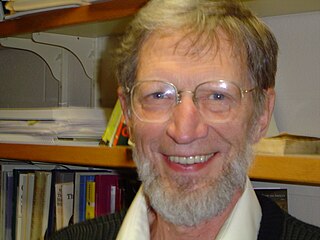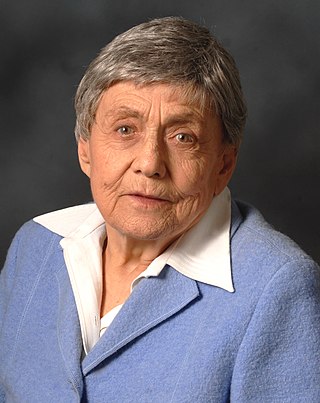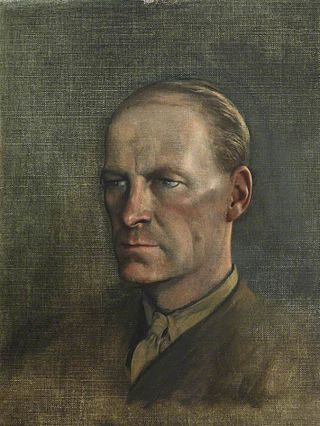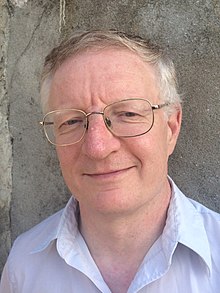
Epistemology is the branch of philosophy concerned with knowledge. Epistemologists study the nature, origin, and scope of knowledge, epistemic justification, the rationality of belief, and various related issues. Debates in contemporary epistemology are generally clustered around four core areas:
Metaphilosophy, sometimes called the philosophy of philosophy, is "the investigation of the nature of philosophy". Its subject matter includes the aims of philosophy, the boundaries of philosophy, and its methods. Thus, while philosophy characteristically inquires into the nature of being, the reality of objects, the possibility of knowledge, the nature of truth, and so on, metaphilosophy is the self-reflective inquiry into the nature, aims, and methods of the activity that makes these kinds of inquiries, by asking what is philosophy itself, what sorts of questions it should ask, how it might pose and answer them, and what it can achieve in doing so. It is considered by some to be a subject prior and preparatory to philosophy, while others see it as inherently a part of philosophy, or automatically a part of philosophy while others adopt some combination of these views.

Alvin Carl Plantinga is an American analytic philosopher who works primarily in the fields of philosophy of religion, epistemology, and logic.
Analytic philosophy is a broad movement or tradition within philosophy focused on analysis, which has been dominant within Western philosophy and especially anglophone philosophy since the latter half of the 20th century. The proliferation of analysis in philosophy began around the turn of the 20th century in the contemporary era in Germany, Austria, the United Kingdom, the United States, Canada, Australia, New Zealand, and Scandinavia.

John Henry McDowell is a South African philosopher, formerly a fellow of University College, Oxford, and now university professor at the University of Pittsburgh. Although he has written on metaphysics, epistemology, ancient philosophy, nature, and meta-ethics, McDowell's most influential work has been in the philosophy of mind and philosophy of language. McDowell was one of three recipients of the 2010 Andrew W. Mellon Foundation's Distinguished Achievement Award, and is a Fellow of both the American Academy of Arts & Sciences and the British Academy.
Understanding is a cognitive process related to an abstract or physical object, such as a person, situation, or message whereby one is able to use concepts to model that object. Understanding is a relation between the knower and an object of understanding. Understanding implies abilities and dispositions with respect to an object of knowledge that are sufficient to support intelligent behavior.

Frank Plumpton Ramsey was a British philosopher, mathematician, and economist who made major contributions to all three fields before his death at the age of 26. He was a close friend of Ludwig Wittgenstein and, as an undergraduate, translated Wittgenstein's Tractatus Logico-Philosophicus into English. He was also influential in persuading Wittgenstein to return to philosophy and Cambridge. Like Wittgenstein, he was a member of the Cambridge Apostles, the secret intellectual society, from 1921.
Crispin James Garth Wright is a British philosopher, who has written on neo-Fregean (neo-logicist) philosophy of mathematics, Wittgenstein's later philosophy, and on issues related to truth, realism, cognitivism, skepticism, knowledge, and objectivity. He is Professor of Philosophical Research at the University of Stirling, and taught previously at the University of St Andrews, University of Aberdeen, New York University, Princeton University and University of Michigan.

Ruth Barcan Marcus was an American academic philosopher and logician best known for her work in modal and philosophical logic. She developed the first formal systems of quantified modal logic and in so doing introduced the schema or principle known as the Barcan formula. Marcus, who originally published as Ruth C. Barcan, was, as Don Garrett notes "one of the twentieth century's most important and influential philosopher-logicians". Timothy Williamson, in a 2008 celebration of Marcus' long career, states that many of her "main ideas are not just original, and clever, and beautiful, and fascinating, and influential, and way ahead of their time, but actually – I believe – true".

Logical atomism is a philosophical view that originated in the early 20th century with the development of analytic philosophy. It holds that the world consists of ultimate logical "facts" that cannot be broken down any further, each of which can be understood independently of other facts.

Gilbert Ryle was a British philosopher, principally known for his critique of Cartesian dualism, for which he coined the phrase "ghost in the machine." He was a representative of the generation of British ordinary language philosophers who shared Ludwig Wittgenstein's approach to philosophical problems.
David Wiggins is an English moral philosopher, metaphysician, and philosophical logician working especially on identity and issues in meta-ethics.
Formal epistemology uses formal methods from decision theory, logic, probability theory and computability theory to model and reason about issues of epistemological interest. Work in this area spans several academic fields, including philosophy, computer science, economics, and statistics. The focus of formal epistemology has tended to differ somewhat from that of traditional epistemology, with topics like uncertainty, induction, and belief revision garnering more attention than the analysis of knowledge, skepticism, and issues with justification.
Michael Williams is a British philosopher who is currently Krieger-Eisenhower Professor in the Department of Philosophy at Johns Hopkins University, noted especially for his work in epistemology.
John Cook Wilson was an English philosopher, Wykeham Professor of Logic and Fellow of New College.
Laurence Jonathan Cohen,, was a British philosopher. He was Fellow and Praelector in Philosophy, 1957–90 and Senior Tutor, 1985–90 at The Queen's College, Oxford and British Academy Reader in Humanities, University of Oxford, 1982–84.
John Patrick Hawthorne is an English philosopher, currently serving as Professor of Philosophy at the Australian Catholic University in Melbourne, and Professor of Philosophy at the University of Southern California. He is recognized as a leading contemporary contributor to metaphysics and epistemology.
Michael Richard Ayers is a British philosopher and professor emeritus of philosophy at the University of Oxford. He studied at St John's College, Cambridge, and was a fellow of Wadham College, Oxford, from 1965 until 2002. Among his students are Colin McGinn and William Child.
John Hyman is a British philosopher. He was Professor of Aesthetics at the University of Oxford before being appointed as Grote Professor of the Philosophy of Mind and Logic at University College London in September 2018.
Definitions of knowledge try to determine the essential features of knowledge. Closely related terms are conception of knowledge, theory of knowledge, and analysis of knowledge. Some general features of knowledge are widely accepted among philosophers, for example, that it constitutes a cognitive success or an epistemic contact with reality and that propositional knowledge involves true belief. Most definitions of knowledge in analytic philosophy focus on propositional knowledge or knowledge-that, as in knowing that Dave is at home, in contrast to knowledge-how (know-how) expressing practical competence. However, despite the intense study of knowledge in epistemology, the disagreements about its precise nature are still both numerous and deep. Some of those disagreements arise from the fact that different theorists have different goals in mind: some try to provide a practically useful definition by delineating its most salient feature or features, while others aim at a theoretically precise definition of its necessary and sufficient conditions. Further disputes are caused by methodological differences: some theorists start from abstract and general intuitions or hypotheses, others from concrete and specific cases, and still others from linguistic usage. Additional disagreements arise concerning the standards of knowledge: whether knowledge is something rare that demands very high standards, like infallibility, or whether it is something common that requires only the possession of some evidence.






